Search
Remove Ads
Advertisement
Summary 
Loading AI-generated summary based on World History Encyclopedia articles ...
Search Results
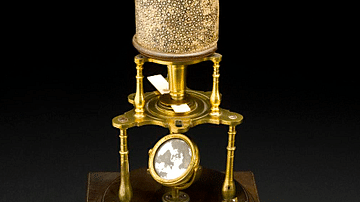
Article
The Microscope & the Scientific Revolution
The microscope was one of the most significant inventions of the Scientific Revolution, opening up completely new and miniaturised worlds. The first microscopes were invented in the first quarter of the 17th century in the Netherlands, but...
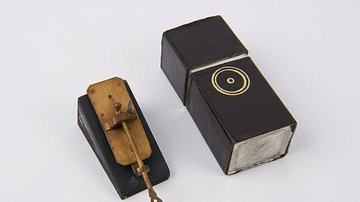
Image
Microscope of van Leeuwenhoeck
A model of the microscope created by Antonie van Leeuwenhoek (1632-1723). Made by the Boerhaave Museum, Leiden, 1983. The microscope used a glass bead as a magnifier, giving a much greater magnification than other types of lenses available...

Image
Microscope of Louis Pasteur
The compound monocular microscope of Louis Pasteur (1822-1895). Made by Nachet et fils, 1861-70. (Science Museum, London)
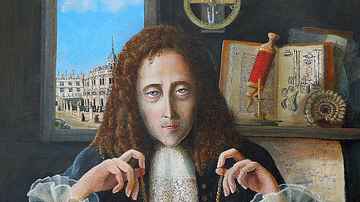
Definition
Robert Hooke
Robert Hooke (1635-1703) was an English scientist, architect, and natural philosopher who became a key figure in the Scientific Revolution. Hooke conducted his scientific experiments outside the auspices of universities, and he was a great...
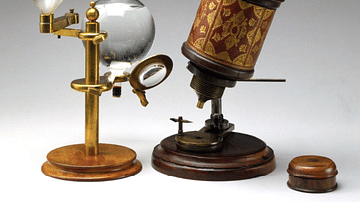
Image
Robert Hooke Microscope
A microscope of the type invented by the English scientist Robert Hooke (1635-1703). Made between 1671 and 1700. The device on the left, designed by Hooke, is a scotoscope which helped better illuminate the specimen under view in the microscope...
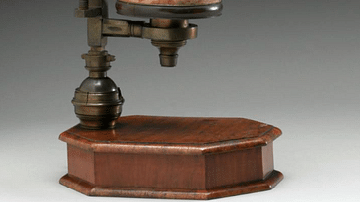
Image
18th-Century Microscope
An early 18th-century microscope designed and made by John Marshall. It is a compound microscope, that is, it uses three lenses. Made of brass, wood, and other materials. (Science Museum, London)

Image
Culpeper Microscope
A microscope with boxfoot made by George Adams in 1738. Based on a model designed by Edward Culpeper (1670-1737). The concave mirror at the base illuminated the specimen better than a flat mirror. (Science Museum, London)
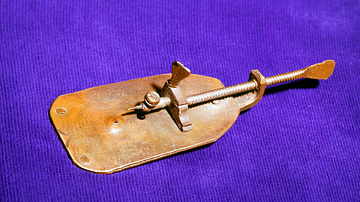
Image
Leeuwenhoek Microscope
A model of a microscope designed and built by the Dutch microscopist Antonie van Leeuwenhoek (1632-1723). The device was unique as it used not the usual glass lenses but a tiny glass bea which gave a superior magnification. Measurements...
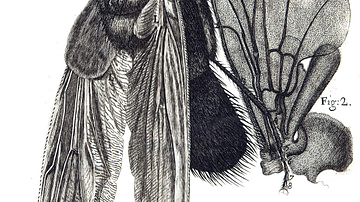
Image
Bluefly under Microscope
A pen and ink drawing by Robert Hooke (1635-1703) first published in his Micrographia in 1665. This page shows a bluefly seen under a microscope. (National Library of Wales)
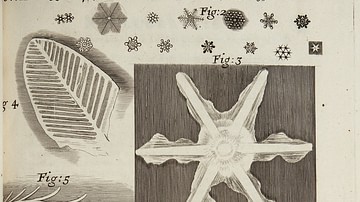
Image
Frozen Structures under Microscope
A pen and ink drawing by Robert Hooke (1635-1703) and published in his Micrographia in 1665. This page shows frozen structures seen under a microscope. (National Library of Wales)